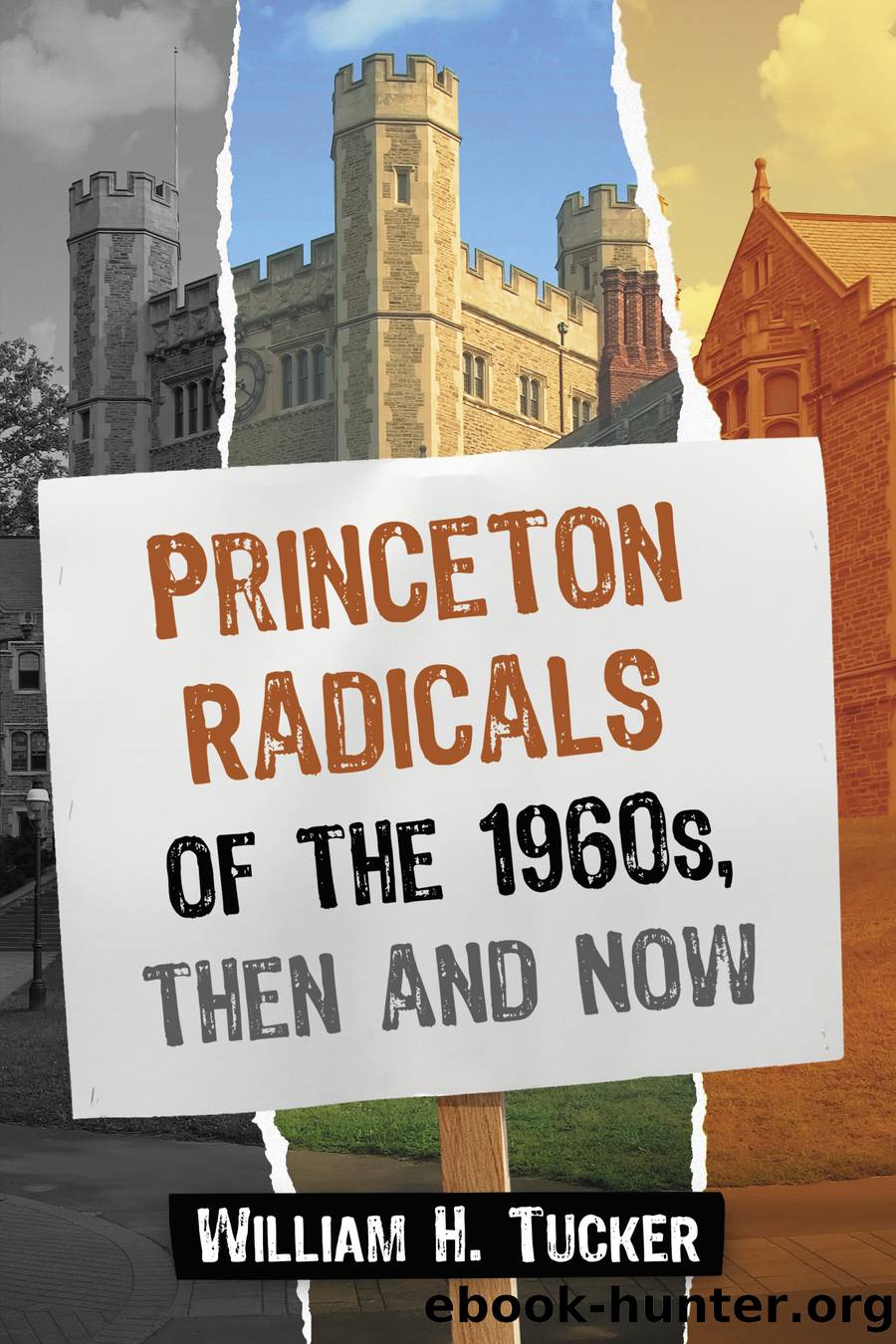Princeton Radicals of the 1960s, Then and Now by William H. Tucker

Author:William H. Tucker
Language: eng
Format: epub
Publisher: McFarland & Company, Inc., Publishers
Published: 2015-09-18T00:00:00+00:00
7. Studying the Divide
In early March 1969 a statement in the Daily Princetonian announced formation of the Third World Liberation Front (TWLF), the counterpart of an organization at San Francisco State and Berkeley. Noting âAmericaâs exploitation and oppression of non-white peoples,â the statement invited all Third World peopleâAsians, Africans, Latin Americans and American non-whitesâto join the âmilitant coalition of non-whitesâ in the belief that âthe recognition of unity is foremost in the understanding of the common enemy before us: namely the racism and imperialism perpetrated by the American (i.e., âfreeâ) system throughout the world.â Interviewed by the newspaper, Gordon Chang, a TWLF leader and the statementâs primary author, explained that racism in the university could ânot be defeated until racism in society is eliminated by the abolition of the capitalist systemâ; the group was anti-capitalist, he emphasized, not anti-white.1
âThe first official TWLF act,â the announcement of its formation declared, was âto give complete supportâ to the demand for divestment from companies doing business in South Africa. Indeed, when the Association of Black Collegians occupied the New South Building five days later, the Princetonianâs front page article on the takeover featured a photograph of two supporters demonstrating outside the entrance: Doug Seaton, a patch over one eye, and, holding the microphone, Gordon, looking almost cloak and daggerishâthe lapels of his overcoat turned up against the March wind, his moustache curling slightly down the sides of his upper lip, and his long dark hair in bangs covering the tops of his wire-rimmed glasses.2 Gordon himself referred to the picture as âbarbarians at the gatesâ; âI was pretty scary looking,â he commented.
Gordon H. Changânot to be confused with Gordon G. Chang, a conservative pundit specializing in commentary on China and North Koreaâis now a member of the History Department and the Olive H. Palmer Professor of Humanities at Stanford, as well as a founding member of the universityâs Asian American Studies Program and editor of the Stanford University Press series on Asian America. I arranged to interview Gordon in March 2008, just as the nation was being exposed to the footage of fiery sermons once delivered by a certain Chicago pastor and spiritual advisor to Barack Obama. Arriving in Palo Alto in the middle of the night, I checked into a small hotel in one of the cityâs two separate downtown areas a mile and a half apartâa consequence of the fact that what had once been the township of Mayfield was annexed decades ago by its newer but faster growing neighbor to the North.
Gordon had offered to pick me up late the next morning, leaving me time to confirm Palo Altoâs reputation as a bastion of liberalism, its mixture of personal liberation and anti-war sentiment a contemporary version of the sometimes vexed alliance between hippies and radicals decades earlier. Posters on a bulletin board in the middle of the commercial area announced such events as an âImpeach the Terrorists Peace Concert and Rallyâ to mark the anniversary of the Iraq âwar that
Download
This site does not store any files on its server. We only index and link to content provided by other sites. Please contact the content providers to delete copyright contents if any and email us, we'll remove relevant links or contents immediately.
Harry Potter and the Goblet Of Fire by J.K. Rowling(3046)
Unfinished: A Memoir by Priyanka Chopra Jonas(2918)
Never by Ken Follett(2884)
The Man Who Died Twice by Richard Osman(2300)
Machine Learning at Scale with H2O by Gregory Keys | David Whiting(2293)
Fairy Tale by Stephen King(2071)
Will by Will Smith(2043)
Rationality by Steven Pinker(1765)
The Storyteller by Dave Grohl(1662)
The Dawn of Everything: A New History of Humanity by David Graeber & David Wengrow(1571)
The Dark Hours by Michael Connelly(1571)
The Stranger in the Lifeboat by Mitch Albom(1532)
Cloud Cuckoo Land by Anthony Doerr(1435)
The Becoming by Nora Roberts(1331)
Friends, Lovers, and the Big Terrible Thing by Matthew Perry(1330)
New Morning Mercies: A Daily Gospel Devotional by Paul David Tripp(1325)
Crying in H Mart by Michelle Zauner(1316)
Einstein: His Life and Universe by Walter Isaacson(1315)
A Short History of War by Jeremy Black(1300)
